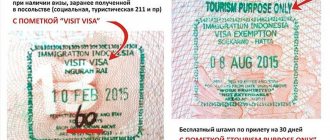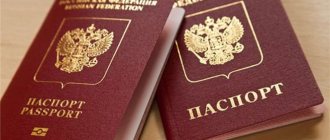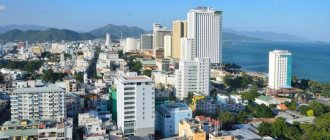April 9, 2021
British airline considered unmarried women children
Read April 9, 2021
Issue No. 25: Dasha answers about Minsk, tests and Kislovodsk
Read April 7, 2021
Tunisia lifts quarantine, but not for us?
Read April 6, 2021
Malta will open to vaccinated Europeans (more difficult for Russians)
Read April 5, 2021
Venezuela resumes direct flights, but under strange conditions
Read April 2, 2021
Traveling with a child in 2021: where you can and under what conditions
Read
Türkiye has obliged tourists to show negative coronavirus tests from December 30. Now, at least 72 hours before crossing the border, you need to take a PCR test and receive a certificate. But not all certificates will be accepted at the control: we tell you where and how to take the test so that there are no questions about it.
Travel ban by law
In accordance with Art. 15 Federal Law No. 114 of August 15, 1996 “On the procedure for entry/exit from the Russian Federation” (hereinafter referred to as Federal Law No. 114) establishes a list of categories of citizens of the Russian Federation for whom exit from the country is temporarily limited. So, the following cannot go on holiday abroad:
- citizens who have access to information containing state secrets;
- conscripts undergoing military service or persons sent to alternative service;
- persons suspected, accused or convicted of committing a crime;
- citizens who evade the fulfillment of obligations imposed on them by the court, including financial ones;
- persons who knowingly provided false information about themselves when applying for a foreign passport;
- employees of federal security agencies (FSB and controlled structures);
- citizens declared bankrupt.
Foreign passports of the persons specified in the first two paragraphs, in accordance with Art. 18 Federal Law No. 114 are transferred for storage to the migration authorities and issued with permission from management. You will find more information in the publication “Ban on traveling abroad.”
Grounds for travel ban
The mere presence of outstanding debts or other problems is not a basis for refusal to travel outside the state. However, any citizen may be limited in the right to cross the border legally. There is no specific Federal law banning travel abroad. However, a number of individual regulations impose corresponding restrictions. For example, Federal Law No. 229-FZ dated October 2, 2002 “On Enforcement Proceedings” in Art. 67 defines the rules for restricting the departure of debtors.
There are several ways to check your foreign travel restrictions online (described below). However, the presence of outstanding debts does not automatically indicate a ban. It is issued by the bailiff, but not in every case, so it is better to check its availability in advance by making a personal visit to the FSSP.
Existence of debts
One of the grounds for refusal to cross Russian borders is the existence of debts that have not been repaid in a timely manner. They are the ones who often do not allow you to leave the country even with correctly executed documents and compliance with other nuances. There are several ways to check the presence of debts for traveling abroad of the Russian Federation (depending on their type):
- on the bailiffs website. If a citizen has outstanding debts for which enforcement proceedings are underway, travel may be prohibited;
- personal visit to the FSSP office. Service employees will inform you about the existence of a travel ban, which will make it possible to clearly understand whether they will be released at the border;
- a personal account on the official website or a visit to the traffic police department allows you to clarify the presence of outstanding fines;
- website or visit to the Federal Tax Service office to clarify the presence of tax debts;
- The State Services portal, if you have a personal account, allows you to clarify the status of various types of debts.
It is more convenient for the interested party to view the availability of debt online, but the information provided during a personal visit to a specific service will be more accurate. This is due to a delay in updating data on service sites.
Travel ban for civil servants: what does this mean?
As can be seen from the above, the law does not provide for any restriction on traveling abroad related only to being in the civil service. In fact, a ban on crossing the border can be imposed on an official only if:
- Access to information containing state secrets classified as “special importance” or “top secret”. We are talking about the so-called second and first forms of admission, which, due to secrecy, are provided to a limited circle of persons.
- Services in the FSB. These are not only operatives and border guards, but also military medical, research, expert and judicial units belonging to the department, and so on.
Since 2014, due to the deterioration of the military-political, criminal, sanitary-epidemiological and natural-climatic situation in the world, the leadership of many departments began to apply the practice of internal restrictions.
It operates according to the same scheme: management issues an internal directive/resolution/order, which it recommends to follow when applying for vacations. In particular, the management of individual departments annually compiles a list of countries to which the departure of employees from a particular structure is prohibited/allowed. When arranging leave for employees, these recommendations must be taken into account. Given the internal nature of these directives, none of them were officially in the public domain, although their details were repeatedly voiced in the media.
In addition, the Russian Ministry of Foreign Affairs has repeatedly issued relevant recommendations. It does not recommend that Russian citizens visit countries with which the United States has a mutual extradition treaty. Allegedly, in these states there is a real threat of detention and arrest for Russians at the request of United States law enforcement agencies. Moreover, such requests are often unfounded and far-fetched. This list includes more than a hundred countries.
Please note that prohibitions, as a rule, do not apply to business trips abroad. We are talking about traveling for personal reasons, including those related to visiting relatives, or on vacation, regardless of the purpose of such a trip.
Who is covered by the unspoken ban?
Thus, the ban on visiting other states officially applies only to citizens who have access to state secrets, regardless of the name of the service, as well as FSB employees. But the unspoken restriction on the right to travel applies to a much larger number of employees. Let's figure out which government employees cannot travel abroad.
First of all, this concerns executive authorities, which provide for military and alternative service. The fact is that travel abroad of these employees in accordance with Art. 19 Federal Law No. 114 requires obtaining prior permission from the command, without which they will not be issued passports deposited for storage.
In accordance with Order of the Ministry of Health and Social Development No. 317 of December 20, 2004, the so-called security forces include employees:
- Ministry of Internal Affairs, including police officers, employees of migration authorities, traffic police, and other police departments and departments;
- Ministry of Defense, with the exception of conscripts and employees of alternative service;
- FSB, including border guards;
- Federal Security Service;
- Russian Foreign Intelligence Service;
- Federal Penitentiary Service;
- Ministry of Emergency Situations.
But this is not the entire list. In 2021, a new wave of discussion arose about the introduction of official bans for all civil servants. So far, such initiatives have not taken the form of changes in legislation. However, referring to the instructions of the Ministry of Foreign Affairs, the management of the departments does not recommend employees to visit some countries (read about the reasons above). The relevant directives apply to:
- judges - from magistrates to the Supreme Court of the Russian Federation;
- customs officers (FCS) and other employees of the Ministry of Finance;
- prosecutors and employees of the Investigative Committee of the Russian Federation.
It is curious that the ban for tax authorities (FTS) and bailiffs (FSSP) was not reported in the media. In addition, no unspoken restrictions have been established for other state and municipal employees whose work is not related to the activities of security or law enforcement agencies. According to experts, the temporary unspoken restriction will affect or has already affected more than 5 million government employees.
Where can government employees go?
As already mentioned, many of the services and federal departments have prepared for their subordinates lists of countries that are allowed to visit. For example, the Ministry of Internal Affairs has sent out such letters of recommendation more than once. The latest of them is the Order of the Minister of Internal Affairs dated December 26, 2017 “On organizing trips of employees of the Department of Internal Affairs of the Russian Federation, civil servants, and employees of the Ministry of Internal Affairs system outside the Russian Federation while they are on vacation.” Thus, a list of 13 countries has been established (previously there were 30) that police officers are allowed to visit on vacation:
- Azerbaijan;
- Armenia;
- Belarus;
- Vietnam;
- Kazakhstan;
- Kyrgyzstan;
- China;
- Cuba;
- Tajikistan;
- Turkmenistan;
- Uzbekistan;
- South Ossetia.
In turn, the list of countries allowed for FSO employees to travel in 2021 allegedly includes 27 states. The last time this list was published was back in 2014. At that time, the countries allowed for entry included:
- Vietnam;
- China;
- Tunisia;
- Morocco;
- UAE;
- Maldives;
- Cambodia;
- Indonesia;
- Iran;
- Moldova;
- Uganda;
- Ethiopia;
- Burkina Faso and others.
Updated information has not been published since then. For military personnel, especially those who have the second form of clearance (that is, admitted to classified information), a list of 27 countries is relevant, which includes:
Which country would you rather live in? ⚡ Take the test in 2 minutes
- Abkhazia;
- Azerbaijan;
- Armenia;
- Belarus;
- Brazil;
- Vietnam,
- Dominican Republic;
- India;
- Indonesia;
- Jordan;
- Myanmar;
- Namibia;
- Nicaragua;
- UAE;
- Oman;
- Thailand;
- Tajikistan;
- Tunisia;
- Sri Lanka;
- South Africa and others.
As you can see, each department has its own list. Uniform recommendations apply only to countries that are undesirable for Russian citizens to visit.
For which foreigners are Russia's borders now open?
The order expanded the list of categories of foreign citizens who can enter the Russian Federation during the period of restrictions due to coronavirus.
Entry of foreigners to Russia for treatment
- Migrants in Russia
Who is allowed to enter Russia to work during a pandemic and how to issue an invitation for a foreign specialist
- Elena Voropaeva
- 06.08.2020
The borders of Russia have been partially opened for foreign citizens who enter the Russian Federation for treatment. In addition to a passport and visa (for those traveling from a visa country), you will need to present at the border copies of documents that confirm the invitation of a foreigner for treatment at a Russian medical organization. Such papers must be issued by a medical organization and must indicate the period of treatment. Or you can confirm the need for treatment in the Russian Federation with copies of documents issued by the Russian Ministry of Health.
As before, foreign specialists who are involved in setting up and maintaining foreign equipment are allowed to enter. But, as experts say, in fact, such workers cannot yet enter the country due to bureaucratic obstacles.
Countries not recommended for visiting
A unified list of countries prohibited for civil servants from traveling has not been published.
For example, back in 2014, an unofficial list appeared from the Ministry of Internal Affairs, including, according to various media reports, from 108 to 150 states. Until 2021, this practice was abandoned - now only permitted countries are published. Nevertheless, the recommendations of the Ministry of Foreign Affairs continue to apply, according to which citizens are not recommended to visit countries with which the United States has a bilateral treaty on mutual extradition. Currently, according to data posted on the website of the US State Department, such an agreement has been concluded with 111 states. It included Turkey, Egypt, European and Baltic countries, Israel and many others.
The leadership of the prosecutor's office went even further. According to Order of the Prosecutor General No. 201 (also not publicly available), the list of countries to which prosecutors are restricted from traveling includes from 167 to 173 countries. Only the prosecutor's office knows how true this information is. In any case, the issue of control over their foreign trips remains open - according to the law, prosecutors are not required to obtain permission to leave the country.
International passport or a document replacing it
To travel abroad, a child under the age of 14 must be included in the passport of one (or both) parents. And if the child is already 6 years old, then his photograph is also pasted into the parents’ passport, which must bear the stamp of the passport and visa service. The absence of such a seal is grounds for refusal to cross the border.











